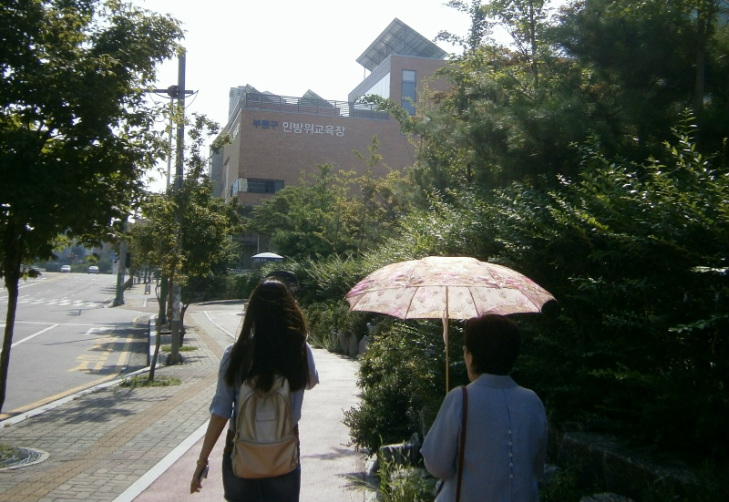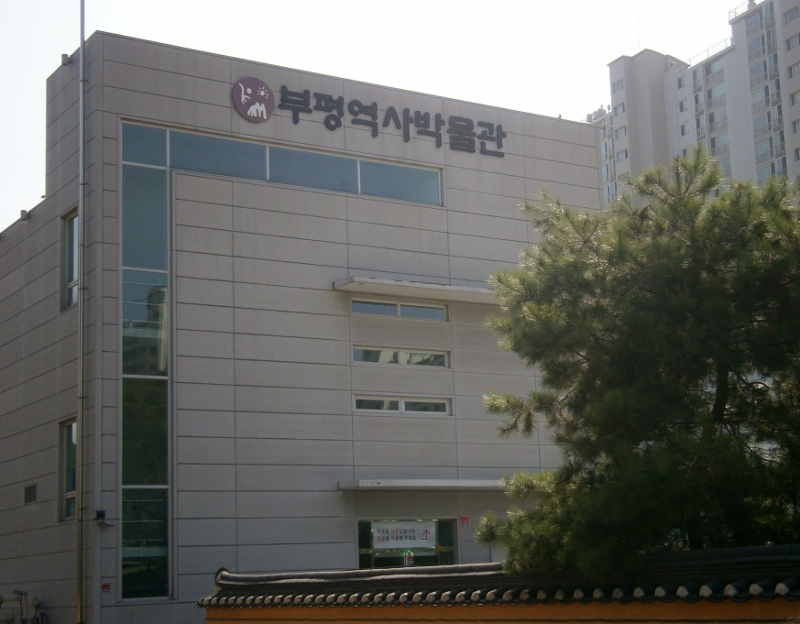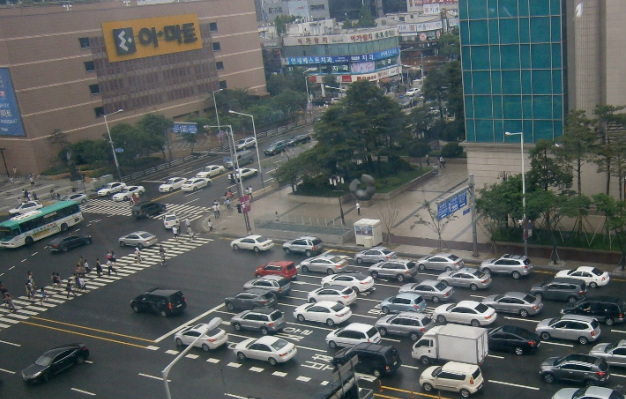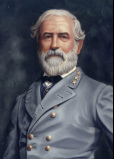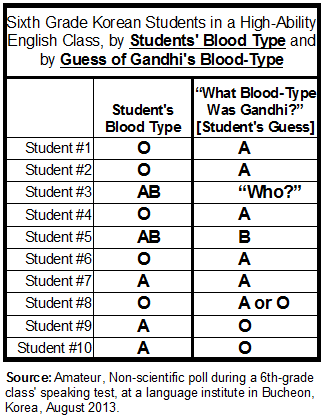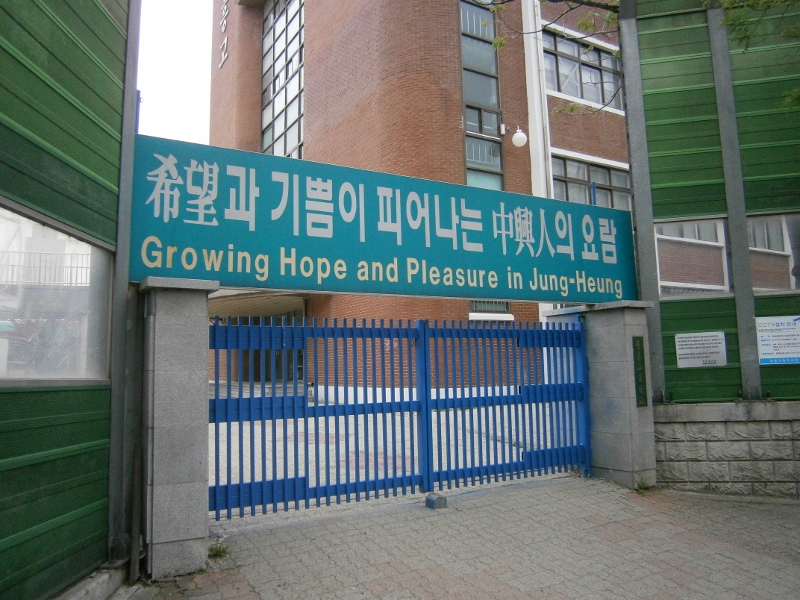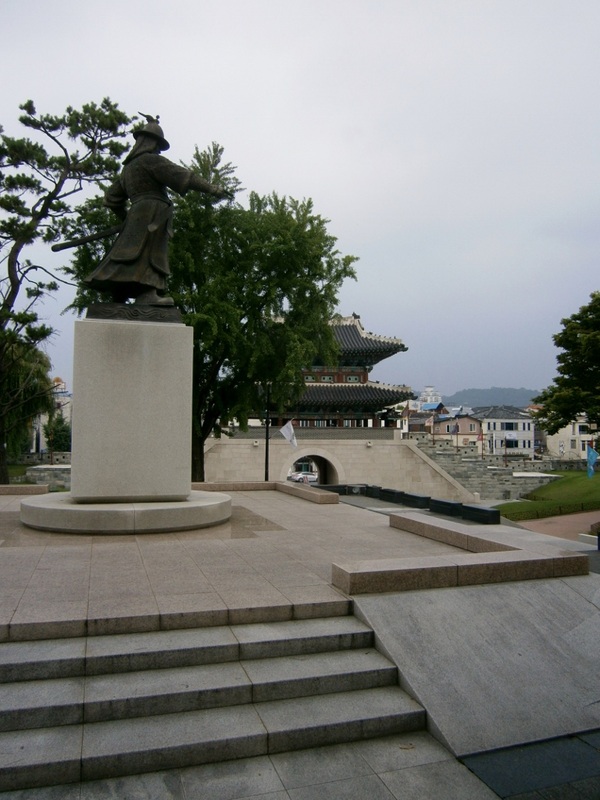I don’t really know if I should write about either one. If I wrote about the former, I’d not be able to avoid negativity and bitterness. It would turn into an “anti-Av****” diatribe. And who likes diatribes? If I wrote about the former, it may look like shameless boasting or self-promotion.
********************
The implications of the “low point” thing frighten and depress me (I’m led to believe that management [such that it is] may be about to thrust the proverbial knife in my back, as my foot is out the door).
********************
I drank an unhealthy amount of coffee during my two nights of two to three hours’ sleep (see post-131 and post-132). So many essays submitted late. I did them all. This weekend, I completed thirteen final “straggler” essays which students submitted on Friday, the last day. I won’t be correcting another single essay the rest of 2013.
Category: Uncategorized
bookmark_borderPost-134: Civil Defense Serenity
I’ve seen several of these by now. Even this time, I was spellbound, although not as shocked as I was the first time. I was in a classroom correcting essays at the time. I opened the window. I stared. I stared some more. There it was, one of the busiest intersections in Bucheon’s Jung-Dong neighborhood, still. Twelve traffic lanes. Many buses, both local and to Seoul and to Incheon. Subway station. Two department stores. Restaurants, coffee shops. And always lots of people, either milling around or racing somewhere.
The only thing happening at this intersection from 2:00-2:15 PM yesterday, though, was a bunch of nothing, punctuated by an occasional angry whistle-blow beration (from a policeman) at somebody bold enough to try to cross the street. Crossing the street was forbidden. Stillness was mandatory, except for the siren.
My coworker, C.R., has to cross this busy street to get to work. He sometimes arrives slightly after 2:00 PM. I wondered, as I stared at the scene of Civil Defense serenity below, if he was stuck on the wrong side. My view was blocked by a tree. I peeked in, and he was in the teachers’ room (a place I dread being in these days). Lucky him. He’s already been threatened for being “late” once. (These are people who generally can’t even produce a class schedule on time until the very day a semester starts. Generally we don’t know what we’ll be teaching till “the day of”).
Update: A follow-up post is here: Civil Defense Drill, Part II
bookmark_borderPost-135: Civil Defense Drill (Part II)
Here is a picture the intersection in front of my workplace which was closed-off for the drill:
To conceptualize the scene as I saw it, you’d have to first image the steady wail of a siren. I have no recollection ever hearing one in the USA. The closest thing was the “fire drill” in school. This was a society-wide fire drill, I suppose.
So, right, the siren. Imagine, further, that all traffic, including foot traffic, is stopped cold. No exceptions. Picture two policemen blowing whistles at anyone who flinches, and four to six retired-age volunteers in a bright uniform that resembles a jersey. The volunteers are holding flags that say “Civil Defense” in Korean.
Fifteen minutes float away thusly. Everyone is frozen in place. A captivating nothingness.
Well, actually, it was not all nothingness. There were was the whistling whenever someone broke ranks and tried to cross. And, the highlight of the nothingness: A few minutes in, a little convoy rolled through: an army jeep, a fire truck, an ambulance, and two or three other such vehicles. They drove fast and on the left (the wrong way in Korea). As all normal traffic was stopped, the path forward — on the left or right as needed — was clear. That must be the purpose of the drill, to practice allowing military and other vehicles to travel at high speeds unimpeded.
bookmark_borderPost-133: Eighty Essays
 By Paul Consella; Stolen from here
By Paul Consella; Stolen from here
Naturally, I was glad to have that out of the way. This calls for a “Phew!“, right? I knew I’d still have to knock out a few more stragglers, but only a few.
Imagine my astonishment when I checked the website again today. Many new essay submissions! The fresh to-do-pile now stands tall at….eighty.
bookmark_borderPost-132: No Time for Content
Likewise, my goal here has always been to make posts of value to the world. Things I’d like to read myself. Maybe I’ve failed, or maybe not; I hope I’ve succeeded at times, regardless of how many people ever read these words. (This may be the opposite of the narcissistic Facebook/Twitter model of what-I’m-doing right-now banality).
Anyway. I don’t have time for value/content today. As I mentioned in post-131 , this is the end of the semester. I have to finish 75 essays by 4:00 PM tomorrow. “No ifs, ands, or buts”, as we say. It’s the last time I will see the students this semester, and some of them it’s the last time I will ever see them. There is no possibility of delay.
I write this at 11:30 PM (Korea time). I have another plan from 9:30 AM to 1 PM tomorrow, so it’s “down to the wire”. The stack of essays sits there taunting me.
bookmark_borderPost-131: Oppressive Heat. Oppressive End of Semester Work.
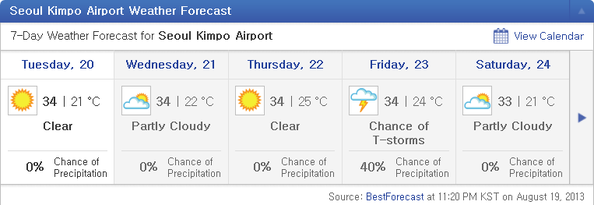
Maybe that’s why these temperatures, not so different from those in my hometown in the USA about now, seem harder to bear in Korea. I remember, with some fondness, the luxury of a central ventilation/AC system within a building. That seems to create a much more pleasant atmosphere than what is normal in South Korea (but maybe that is just “the grass was greener in the past” thinking).

I need to write up comments for every student (184 as of this writing) and finish up the semester’s essays (100+ to go). The semester for the 7th, 8th, and 9th graders ends this week. For 5th and 6th graders, it ends next week. In most of August, I had a 9:30 AM to 6:30 PM schedule (due to students’ vacation from school), but now it’s back to 2-10 PM.
The hours of comment-writing will hurt. I try to approach them seriously, though, and write meaningful and true comments. The purpose of the comments is for the Korean homeroom teacher to report on students’ progress with the mothers over the phone. Since these will be my last, I’ve tried to do an especially thorough job. And partly they are for my successor: All comments from all teachers at all times are input on the website onto a kind of “student page”, a kind of digital “permanent-record” that all (and only) teachers can see, including those who come later.
bookmark_borderPost-130: “What Properties Have Verbs?” (1912)
I was surprised to see grammar question #4:
What properties have verbs?
Consider the German “Was haben Sie zu Essen?” In English, its word-for-word translation is “What have you to eat?” which sounds wrong, today, but once was right. That kind of “Germanic” phrasing was common for most of English’s history, I think. I remember seeing it in Shakespeare [circa 1600], and Gulliver’s Travels [1700s] and Moby Dick [1850] as well. Even Lincoln, in 1862, wrote to General McClellan, “Have you any more perfect knowledge of this?”
Experts say that the extra “Do” comes from Celtic:
In Our Magnificent Bastard Tongue: The Untold History of English, John McWhorter [….] first demonstrates how Anglo-Saxon, brought to England in the Fifth Century A.D. by the Angles, Saxons and Jutes, and which we tend to call Old English, morphed into Middle English over half a millennium or so. In the process, its Germanic grammatical constructions were nearly all replaced by a grammar that is seen to be Celtic, resembling Welsh and Cornish, including in particular our tendency to use “do” as a “helper verb”: “Do you want to go?” or “I didn’t take it!” have replaced “Want you to go?” and “I took it not!”. The former are Celtic constructions, the latter, Old English but with modern spelling. [From “Three Steps to English” by Polymath07]
By the way, one reason the 1611 King James Bible seems so poetic may be that it doesn’t follow, at all, the way we use this “do-helper” today:
The Gospel of John, Chapter 6 [KJV]
26 …..[Y]e did eat of the loaves, and were filled.
27 Labour not for the meat which perisheth…..
“You all ate the loaves and were filled. / Do not labor for the meat which perishes…”
bookmark_borderPost-129: On Fear and Going Abroad
[T]he main reason I first came to Korea was to force myself to confront fear. Actually, this is not a particularly unusual reason; I’ve met a few people who’ve had similar epiphanies and ended up in Korea because of them.
At the time I had been working from home and living alone for nearly two years. For an introvert this can be an appealing way to arrange your life, but in the long term it’s pretty dangerous to your mental health. For me, I was fine with that for a long while, and then I wasn’t fine anymore, and things fell apart for a bit. When I pulled myself back together, I had as a key understanding that I needed to do something radical with my life; something that would shake me out of my slumber and re-introduce some risk, because I had made things perfectly safe for myself, and that had become a problem.
Shortly after that, I was looking through job advertisements in the hope of finding something different to do, and came across an ad for teaching English in Korea. It was far more “different” than what I had consciously been looking for, and I was immediately gripped by a realization; that the idea was terrifying to me, and that it was also absolutely what I needed to do, and that if I didn’t do it, my realization about what I needed to do with my life was phony, and I was just a coward.
So I started going through the process, and in less than three months I was in Korea, and it was probably the best decision of my life.
Now I am not, despite appearances, a brave traveler. The thought of the unknown is scary to me; the idea of being lost in a city where I don’t speak the language, with nowhere to stay for the night, is and continues to be a great fear of mine. So it wasn’t easy for me to make the decision to come to Korea, but as with most such decisions, the brave option is the better one; it sure beat the hell out of another year of living alone and working from home.
Before I came, I got two pieces of really good advice from……. [Continue Reading]
A few months ago, I tried to write about my first night’s experiences (post 46 and 47 and 48 and 49 and 50 and 51 and 52) but I never finished. I never even got to the “punchline”. Maybe later. The reason I was able to write so much about that night was that I, too, was definitely scared about coming to Korea and scared when I first arrived. In those circumstances, memories stick, of course.
bookmark_borderPost-128: August 15th Independence Day
August 6th: An American atomic bomb destroys Hiroshima.
August 9th: An American atomic bomb destroys Nagasaki.
August 15th, 12:00 Noon: The Emperor of Japan announces Japanese surrender via radio.
August 15th, 12:01 PM: The Japanese Empire is dissolved; all overseas possessions are released. The war is over.
Students were depressed/sullen about being compelled to “study” on a national holiday. Speaking of students: North Korea teaches its youth that August 15th was when Japan surrendered to Kim Il-Sung’s triumphant rebel army. A sheer fantasy. South Korean education has, from what I gather, a trace of that kind of thing, too. Students have expressed to me their idea that Japan was partly compelled to surrender because of pressure from Korean rebels.
Koreans put more emotion into another “independence day”, March 1st. A nationalistic anti-Japanese uprising occurred in 1919 on that day. It failed, but it was a native-Korean effort all around. (In fact, Japan largely controlled Korea as a puppet from the 1890s or even 1880s, and fully-annexed Korea in 1910. That means that in 1945, only the very oldest of Koreans could remember a truly independent Korea. Syngman Rhee [born 1875] may have been one.)
March 1st is untouchable. I’ve never heard of anyone working on it. It’s also the beginning of the Korean school year.
It was a lively meeting. I talked very quickly, knowing I had to be teaching again by 3:00. / J.A. is in better spirits than I’ve ever seen him, I think. He was excited to learn a very-big “Starbucks” is opening right below my workplace.
bookmark_borderPost-126: Robert E. Lee’s Appalling Treason
Schachter thinks, or claims to think, that Robert E. Lee was actually a monster with an“appalling record of treason, racism, hatred, and dishonor”. (Americans tend to think of Lee as a Southern Gentleman par excellence. Even those who dislike the CSA, or even dislike the South itself, respect and revere General Lee.)
Schachter claims that better names would be “James Armistead Lafayette, Mary Elizabeth Boswer, William Harvey Carney, Barbara Johns, Maggie Walker [or] Oliver Hill”. All no-names.
Some Googling reveals that every single one of those alternates is Black. I highly doubt John Schachter is Black. (Here is what some Internet site says about that particular surname: “[The name Schachter] was apparently often Ashkenasic, and used specifically to describe a [kosher] ritual slaughterer. The derivation is understood to be from the Hebrew ‘shachet’ meaning to slaughter.”) An actual Black guy, an NAACP leader from Arlington, opposes the idea.
This story is as if it were designed just to prove post-122’s point about politically-correct school names in Arlington.
It’s been an Arlington institution for nearly 90 years. But is it time to change the name of Washington-Lee High School? / John Schachter thinks so, although it likely will be an uphill, perhaps quixotic, battle to remove the Civil War general’s name. / Schachter, who can see the high school from his 21st-story condominium unit nearby, used the citizen-comment period of the Aug. 8 School Board meeting to say Lee’s name (though not Washington’s) should be removed from the school. / Lee deserves “no positive recognition for his appalling record,” a record that includes “treason, racism, hatred and dishonor,” Schachter told School Board members. / “Lee deserves no honor for fighting on the wrong side for the wrong cause,” he said. / Schachter asked board members to establish a committee to “right this egregious wrong” and come up with an alternate name for the school, whose history dates to the early 1920s. [Article Continues]
The question about Lee’s “treason” becomes the tricky and unresolvable one of whether the States, or the USA itself, were the primary unit(s) of political identity in America.
A strong case could be made that Lee would’ve been even more of a traitor even if he’d stayed in the U.S. Army and led the invasion of Virginia, his home state. Ironically, Lee opposed secession personally, I’ve read. Yet Virginia had voted to secede. It was done. Why would Lee fight against Virginia, against his family, his friends, his neighbors?
bookmark_borderPost-127: Lincoln’s Pet Goat
Executive Mansion, Washington, August 8, 1863.
My dear Wife.
All as well as usual, and no particular trouble any way. I put the money into the Treasury at five per cent, with the previlege of withdrawing it any time upon thirty days’ notice. I suppose you are glad to learn this. Tell dear Tad, poor “Nanny Goat,” is lost; and Mrs. Cuthbert & I are in distress about it. The day you left Nanny was found resting herself, and chewing her little cud, on the middle of Tad’s bed. But now she’s gone! The gardener kept complaining that she destroyed the flowers, till it was concluded to bring her down to the White House. This was done, and the second day she had disappeared, and has not been heard of since. This is the last we know of poor “Nanny”.
The weather continues dry, and excessively warm here. [….]
An Internet search says that the pet goat stayed in the “East Room” of the White House.
bookmark_borderPost-125: Two Years Gone; One Month To Go
One Month Left
On Friday September 13th of 2013, I will walk out of my present place of work and never return to it. Never.
My immediate plan is to hike across what we can call “Korea’s Appalachian Trail” (Baekdu-Daegan). I will get around to posting more about this, as the plan comes together. Things open up in mid-September. After the long hike, there are other possibilities. I will be in the USA before the year is out.
Two Years Ago
Around this time in August of 2011, I interviewed with M.G., then the British “foreign head teacher” at my job here. The interview lasted twenty or thirty minutes. I was impressed that a foreigner was giving the interview. Korean employers, frankly, arouse a high level of suspicion in me. Hearing a British voice was really relieving and even exciting. I took the job, mostly because I thought a foreigner giving the interview was a very good sign. I started a month later, mid-September 2011. Twenty-three months after that, here I am.
[M.G. (b. 1985), who gave the interview, became a friend. We played soccer, ping-pong, basketball. His girlfriend E.R., also from England, worked with us too. M.G. was quiet and cerebral; E.R. was upbeat and pragmatic. We can say they complemented each other. E.R. baked delicious cakes. Declining them was impossible. They left in late June 2012.]
In the next weeks, coming up to the glorious End, maybe I’ll do more substantive “retrospectives”, but maybe not. Maybe it’s good to just avoid the subject. I’ve tried and usually succeeded. As that bland old advice goes, “If you can’t say something good about something, don’t say anything at all.” Various people have given me that advice. It is good advice. If they let me talk to my replacement, though….
bookmark_borderPost-124: Bloodtype Webtoon
Blood Type A: Careful and hardworking but shy; internally nervous and worried about others.
Blood Type B: Fun-loving and charismatic, but unpredictable and can be rude, selfish, and/or lazy.
Blood Type O: Sociable (can be over-sociable), optimistic, and a natural leader.
Blood Type AB: Serious, smart, and able, but aloof and eccentric.
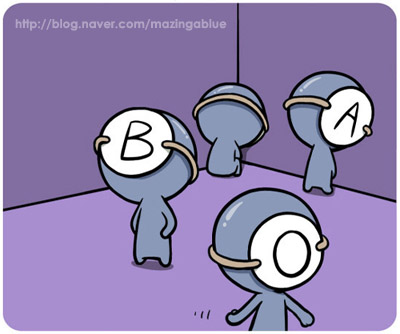
When the four bloodtypes are in the same room, the quiet TYPE A would be near the wall so as not to attract attention, self-centered TYPE B would naturally go to the center of the room, TYPE AB would be daydreaming in a corner, and TYPE O would be walking around the whole room socializing.
bookmark_borderPost-123: Blood Type Theory in Korea and Perception of Gandhi
Here is how I understand it:
- Blood Type A: Careful and hardworking but shy; internally nervous and worried about others.
- Blood Type B: Fun-loving and charismatic, but unpredictable and can be rude, selfish, and/or lazy.
- Blood Type O: Sociable (can be over-sociable), optimistic, and a natural leader.
- Blood Type AB: Serious, smart and able, but aloof and eccentric.
I occasionally discuss this theory with students, and it’s always a winning strategy. They are “into” it.
This past week there was a speaking test, probably the last one I will give here. We had been studying “personalities” in the text-book, so I decided to make both the speaking and writing tests about personality. In the speaking test, I asked all ten students various questions, one of which was “what is your blood-type?” Because of this blood-type belief, everyone knows his or her own type. I then asked them to consider what Gandhi’s blood-type may have been (he was in the textbook), and explain why they thought so. I noted their answers. I thought this would, somehow, give me some kind of insight into Blood Type Theory. This little graphic I made shows the results:
Notes
- “Methodology”: I asked each student this question individually, as part of their speaking test, in a separate room. That is, they were each alone with me in the testing place, one by one. It was also a surprise question. There is no way they were influenced by other students’ answers to this “Gandhi question”.
- Student #3: [born Sept 2001] This is a girl who has spent a few months in California, and who sounds, sometimes, ever-so-slightly like a “Valley Girl”. She claimed to not know who Gandhi was. I said he was from India. She said “Really?!” She is AB. She was the only student who claimed to not be familiar with Gandhi, which fits in with the “eccentric” idea for AB people.
- Student #8: [born July 2001] This is a girl who attends an International School in China. She is back in Korea on summer vacation. She will leave soon, because vacation is ending. She reported that she was Type O, but she also said that she was “half B” (meaning her actual blood is O, but she has some B characteristics). This surprised me because I think she is a clear “A”, quiet and hardworking!
- Student #9: [born April 2001] This is the bright boy who is a fan of dinosaurs, whom I have written about before. He is the only student who thought Blood Type Personality Theory was wrong. He was insistent that it is not true, but even he was very aware of the ideas of it.
Summary of Results
- Students with blood type A thought that Gandhi was type O by a 2-to-1 margin.
- Students with blood type O thought that Gandhi was type A by a 5-to-0 or 4-to-1 margin (#8’s double-answer).
- Students with blood type ‘AB’, suitably to the stereotype, gave the only two oddball answers. That is to say, they gave the only two non-A, non-O responses. One girl said ‘B’, and the other was Student #3 (see above).
Simply:
A’s guessed “O”.
O’s guessed “A”.
I wonder what this means. There is clearly some following of cultural expectations going on. Maybe it means these kids don’t want to see themselves as “like Gandhi”, for some reason. People who see themselves as “O” may be playing-up Gandhi’s supposed nonviolence (“A” would be the least violent of any type). People who see themselves as “A” may want to play-up Gandhi’s leadership (an “O” trait). Maybe, then, in heroic figures, we look for what’s lacking in ourselves.
I’m open to better explanations.
********************
Related Posts
Post 64: “Refusing a Nickel“
Post 7: “Nobody Wants Robot Teachers”
Post 8: “Robot Supporter Demographics“
bookmark_borderPost-122: School Names in South Korea vs. The USA
Korean School Names
The school’s name in post-121, Jung-Heung [중흥], translates as “the Center of Joy” (a name probably mocked regularly by its students). Jung means center, and heung means “interest, fun, pleasure, joy, amusement…”, according to my dictionary. Korean schools all seem to have names like this. They are either highly abstract, or tied directly to the local place. For example, there is a Songnae High School near, believe it or not, Songnae Train Station.
Naming schools after people or after specific (non-local) places of historical of “patriotic” interest is the way schools are named in the USA. At least, that’s true in the part of the USA in which I am most familiar with school names (Northern Virginia).
My home of Arlington, VA has three regular public high schools. The origins of their names:
- One is named “Yorktown”, an early colonial capital and later Revolutionary War battlefield, at which the British finally surrendered to George Washington.
- Another is named after George Washington and Robert E. Lee,
- The third is named after George Washington’s birthplace, “Wakefield“.
A Different Arlington
Actually, until now I hadn’t realized that all three Arlington high school names were tied to George Washington. I wonder if that was intentional when they were named in the early-mid 1900s. I doubt the people at the helm in today’s Arlington would do something like that. First of all, those places are all Virginia-centric. Arlington people don’t think of themselves as Southerners at all. Included in the mix is even General Lee, the very archetype of Old Southern gentility.
 Sandinista Revolutionaries / Nicaragua / ca. 1980
Sandinista Revolutionaries / Nicaragua / ca. 1980
It reminds me of a line from Bonfire of the Vanities [1987]. The Mayor says:
“[The Black Episcopalian Bishop] coulda just as easy been a woman or a Sandinista. Or a lesbian. Or a lesbian Sandinista“!
 Stonewall Jackson
Stonewall Jackson
There was also a Page Elementary School, also renamed in the 1990s. I don’t know what ol’ Mr. Page, whoever he was, did to deserve his name being purged.
bookmark_borderPost-120: Woman Taxi Driver
11:40 PM last Sunday. I step off a bus at “Express Bus Terminal” in southern Seoul. I am returning from Jeonju.
A taxi is lurking nearby. It’s almost a rare sight in Seoul to not see a taxi. I get in. Surprise: The driver is a woman! She is in her late 30s or 40s, I think. Thin. She speaks quickly and enthusiastically. Her voice reminds me of my first boss’ voice, from Ilsan. She grips the wheel tightly, at ten o’clock and two o’clock. She drives quickly. She makes at least one obvious wrong turn, despite being led by GPS, and says some Korean equivalent to “Aw, damn!” (or worse).
I was surprised that the driver was a woman, of course. It’s the first time in my life that I’ve seen a woman taxi driver. I wonder about her. How did she get into that business? Why? When?
Why was I riding a taxi?
The intercity bus passengers, me included, mostly wanted to get into the miraculously-cheap subway network (the base adult fare for which is only 95 U.S. cents in 2013, at any time of day. My ride was longer, but I’d still get home for a delightful $1.25). The station-guard turned everyone back. We’d narrowly missed the last trains. — Okay. — No big problem — Just inconvenience. — I’d have to get a taxi to Seoul Station, and then get on a long-distance bus to my home in Bucheon. (Plan B, taxi and bus, would cost 8,000 Won for the taxi and 2,000 Won for the bus [bus travel time: 45 minutes, traveling on the highway, limited stops]. Total extra cost: $9.00.)
At the nearby shopping center at which I buy a lot of my food (called “HomePlus”), there are twenty or thirty “checkout lanes”, places at which cashiers scan your groceries and you pay. At certain busy times, all the lanes are full. When that’s the case, there are always a couple of male cashiers. Otherwise, the job of supermarket-cashier is 100%-female in Korea, in my experience.
I have often noticed something strange, in these cases. When male cashier clerks are present, they always, always have the shortest lines. Few want to go into their lines. Koreans would rather choose a line with three people ahead and a woman cashier, than a line with one person ahead and a male cashier! It’s a waste of several minutes, which Koreans usually don’t tolerate. I also find myself doing this, that is, avoiding male cashiers. I can’t explain it.
bookmark_borderPost-121: “Growing Hope and Pleasure” (Or, Chinese Characters in Korea)
This school is within the “New City” area of Bucheon, where I live and work. The school opened its doors to students for the first time in March 1994 (according to its website), before which this site was presumably farmland. A lot of nearby land was still being used as farmland into the late ’90s, I’m told. (The apartment building I live in was built only in 2004, and the building I work in was built in 2002.)
[Jung-Heung is the school’s name]
Written Korean, ever since the invention of the Korean script (“Hangul”) 600 years ago, has always been a mix of Hangul and Hanja, of Korean letters and Chinese letters, with wild variation in the shares of each in different eras. In the later centuries of the Chosun Dynasty (1700s, 1800s), I’ve read that it was fashionable among the educated to use only Chinese characters, and the native-Korean script was “for women and farmers”, or something. In the 1950s and 1960s, Chinese letters were still in heavy use, which is obvious from news-clippings and street photos from then.
I’m told that the government of General Park (1961-1979) led a deliberate campaign to get rid of Chinese characters in public life, which has succeeded. Most Koreans born after 1980 (or whenever) can read very few Chinese letters.
Translation Effort
- [Chinese Letters]: Hope (I ascertain this meaning only by process of elimination; I can’t read it)
- 과: and
- 기쁨: Pleasure, joy, delight
- 피어나: begin to bloom; begin to prosper; light up
- [Chinese Letters]: The name of the school, i.e. “Jung-Heung”
- 요람: Cradle, birthplace, as in “the cradle of civilization”
I think “Growing Hope and Pleasure in Jung-Heung” is a good translation.
Another could be “Where Hope and Joy Bloom”, or maybe “The Cradle From Which Hope and Joy Burst Forth”.
bookmark_borderPost-118: Letter of Resignation
I requested that the above be written into my contract when I signed it almost one year ago. It was one the points of unclarity I requested be made explicit. I wanted management to treat me fairly such as to resolve my employment situation in a reasonable timeframe. Last time, they delayed a lot.
Professionalism dictates, surely, that the matter should be settled long-enough before my visa runs out that I can make my next plans. I requested the date by which we should settle the matter be made explicit, and set to July 30. That way, there was a firm date which we can both clearly see, and, I hoped, they wouldn’t endlessly delay like last time.
bookmark_borderPost-119: Jinju Fortress’ General Kim (and Admiral Yi Soon-Shin)
The fortress is huge; lots to see; a wonderful place; I thoroughly enjoyed my hours there, except for the cicada-cacophony. (If you put yourself in my place while taking this picture, you have to image an incessant, grinding, loud cicada-humming).
Background: North Gate (공북문).
Further background: The old city-center of Jinju, north of the river.
Admiral Yi
A similar-looking statue, which I have walked past many times, stands at Gwanghawmun Plaza in the very heart of Seoul’s old center. That one depicts the greatest Korean military hero of them all, Admiral Yi Soon-Shin (이순신). In the same war against Japan (of the 1590s), Admiral Yi won a series of lopsided victories at sea, making up for the poor showing of Korean arms on land. People credit him with all-but single-handedly defeating Japan in that war.
Bafflingly, in the midst of Admiral Yi’s (undefeated) string of victories in the war, the leadership of Korea’s Chosun dynasty stabbed him in the back, and actually put him in prison (and nearly put him to death), in the most paranoid kind of Stalninesque purge. Sure enough, after Yi’s political-imprisonment, the tide of the war began to turn against Korea. The Japanese began winning victories at sea. Yi was released and saved the day, again.
(I learned all that from a biography of General Park Chung-Hee, South Korea’s military-ruler from 1961-1979. General Park viewed Korean political history surprisingly-negatively and he railed about it in essays. General Park’s words are almost too shocking to be believed: He wrote, “Our five thousand years of history was a continuation of degradation, crudity, and stagnation” in the essay “The Nation, the Revolution, and I” [“국가와 혁명과 나”,1961(?)], mentioning, among other things, that Korea’s indisputably-foremost military genius [Admiral Yi] was imprisoned, during a major war when the very fate of Korea was at stake[!], because of useless political squabbles and petty jealousy.)
bookmark_borderPost-117: “I Wanna Ride the Train!” (Or, Learning Korean from a Toddler)
On the bus going into Jinju City from the train station. In the seat in front of me: A mother. A small boy, small enough to still be held by its mother but old enough to speak (maybe age 3). He was mellow until the bus started rolling. Then the wailing. Loud. Embarrassing for all aboard. The mother did nothing, said nothing. The wailing continued, minute after minute. Some chuckles from other passengers. A pause; the boy catches his breath. More wailing. The same phrase. “I wanna try riding the train!! — I wanna try riding the train!!” (“기차 타 볼래!!”).
I presume the boy and his mother had just said goodbye to the baby’s father, who I presume was riding somewhere on business. The baby shouted“기차 타 볼래!!” because he saw his dad riding the train, and saw other strangers were riding it, and felt cheated that he was forbidden from riding the wonderful metallic monster, something he had never done. As the mind of a baby has it, shouting “I wanna ride!” enough times, loudly enough, is a winning strategy.
I tried to make sense of the toddler’s plea. I recognized “기차” (train) and “타” (ride), learned from my hundreds of rides on the subway. “볼래” I didn’t know. It t was explained to me later that it means “I wanna” ( informal).
After ten minutes or so, the mother finally spoke, and something I couldn’t understand except for the word “bus”. I presume, from her singsong baby-talk tone, that she was telling the small boy that “Hey, riding a bus is fun, too”. The boy must have found this convincing, because the wailing faded into whimpering. Still, he maintained an occasional “I wanna try riding the train” (“기차 타 볼래”) every now and then until we were in central Jinju and I got off the bus.

